
views
Cooperating with the Investigation

Contact the caseworker. If you're accused of child neglect, you can't rely on the caseworker to contact you for your side of the story. You can call the state agency responsible for handling child abuse or neglect reports – typically called child protective services or something similar – and find out the name of the caseworker who has been assigned to your case. If the allegations of child neglect are false, you want to do everything you can to provide the caseworker with the correct information and prove that you are taking adequate care of your child. Make sure you understand the specifics of the report and the allegations. However, be careful when speaking with the caseworker. Remember that anything you say to him or her can be used against you, both in the investigation and in any court actions that follow.
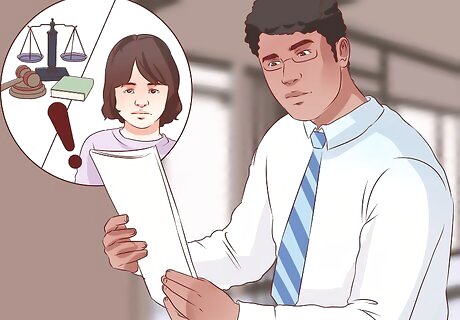
Get copies of all reports. You should have a copy of any reports or allegations filed with the agency, particularly those that lead to an investigation for child neglect. If you have been accused of child neglect, the report should detail the reasons that claim was made. Child neglect claims are made when someone suspects that you aren't caring for your child properly, such as adequately feeding or clothing the child. While child neglect reports frequently are made by ex-spouses, a report also may have been filed by a neighbor, or by your child's teacher, doctor, or other caregiver. In most states people who regularly work with children are required by law to report suspected abuse or neglect. Although you may be able to get a copy of the report, you may not be able to learn the name of the person who made the report. Many states keep the identity of someone filing a child abuse or neglect report confidential upon request. If the caseworker asks you to sign any documents such as information releases, make sure you read the documents carefully and understand what they say before you sign them. Get copies of everything you're asked to sign.

Make yourself available. During the investigation, do your best to open your home and communicate with the caseworker regularly. Although you typically have the right to refuse to speak to the caseworker or allow him or her to enter your home, doing so won't do you any favors in terms of the outcome of the investigation. A caseworker will come to your house as part of the investigation and evaluate the space and provisions you've made for your child. He or she also may want to observe during normal daily activities. The caseworker also will interview you regarding the allegations in the report. The questions you are asked will depend on the allegations made, but may include financial issues, your cultural, racial, or religious background and preferences, and medical or emotional problems of either you or your child. The caseworker also may want to talk to the child and to other family members, as well as anyone who works with your child on a regular basis such as teachers, doctors, or daycare providers. Although the caseworker may say things that upset you, it's important to keep your cool and not lose your temper. Be polite and focus on the best interests of your child.
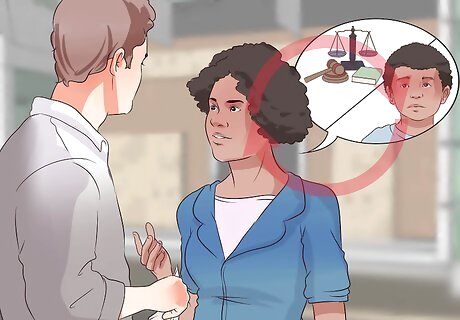
Follow up after the investigation. Find out when a final report on the investigation will be issued and what the next steps will be in the handling of the case. Continuing to follow up can send a signal to the caseworker that you care about the outcome of the investigation, that the report and the investigation are important to you and you're taking it all seriously. Keep in mind that you have a right to all reports and other information in your file with the agency, but you may have to ask to get it. Caseworkers typically won't be forthcoming with information unless you specifically request it.
Appealing Agency Findings
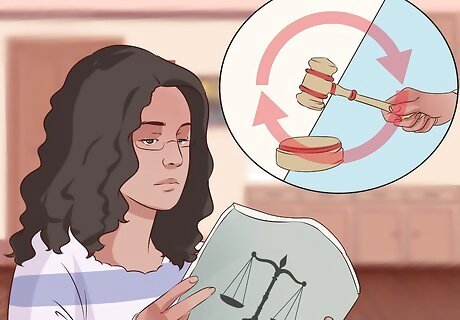
Review the agency's decision. Make sure you have a copy of the agency's final report on the investigation so you can study and understand the findings. The agency has a limited period of time to complete its investigation and issue a final report, typically within 30 to 60 days. After the investigation is completed, the caseworker will issue a report with the results of the investigation and a determination of whether the allegations have been supported. You should receive a final report within a week to 10 days after the investigation is completed. The caseworker may recommend you and your family for state assistance services or participation in parenting classes. Make sure you fulfill any such recommendations. If the agency finds the allegations against you are substantiated, you may be added to a list of people who are at risk for neglecting or abusing children. The information on this registry list will be available when anyone conducts a background check, and your name on that list could result in you losing a job or license, having rental applications refused, and other negative consequences.
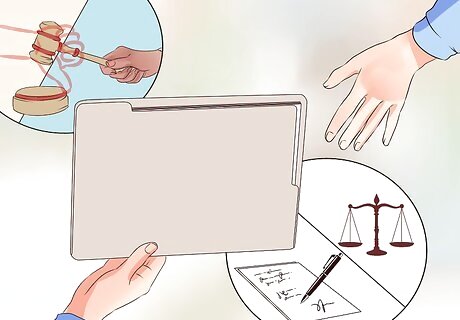
File your appeal. If you disagree with the results of the investigation, you should appeal the findings as soon as possible. If the caseworkers findings support allegations of child neglect, you should receive information on how to appeal the decision along with your copy of the report. Read the notice you receive carefully, as it not only provides information about how to appeal but may also include a deadline by which you must respond. If you don't file an appeal by that deadline, you will no longer have the ability to do so. Appeals typically must be made in writing. The agency may provide a form you can fill out, or you may have to write a letter. If you write a letter, include your name and any case number or name included on the report, as well as the date the report was issued. State that you want to appeal the findings in that report, and explain why. Sign and date your letter, and make a copy of it before you mail it to the agency.
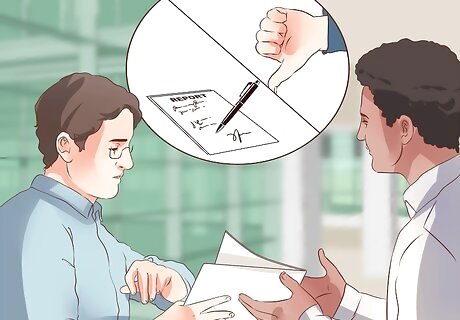
Address any issues mentioned in the agency's report. Do what you can to take care of anything that may have contributed to the findings against you. The final report should include reasons or observations that led the caseworker to agree that the allegations against you had merit. If any of these reasons were the result of misunderstanding or misinterpretation, you have the opportunity to clear that up on appeal. If the caseworker has listed problems that you can eliminate, you should do that as soon as possible. For example, if the caseworker was concerned that you were leaving a young child unsupervised in the afternoons, you may want to make arrangements to enroll your child in an after-school program or hire a responsible babysitter.

Attend your hearing. When you appeal, most state agencies give you the opportunity to explain your side of the story and why you disagree with the investigation's findings. If you've taken action to remedy any of the problems included in the report, you should bring this up at the hearing and explain what you've done to remedy the problem. Make it clear that you understand the seriousness of the allegations and are taking the situation very seriously. You may have a live hearing, or there may be an additional step in which the file is reviewed by another agent uninvolved with your child's case to determine if the caseworker committed any errors during his or her investigation. You should contact the agency if you are unsure what the procedure will be. If there is a live hearing and you don't appear, your appeal will be dismissed and you may not have another opportunity to question the agency's findings.
Working with the Courts
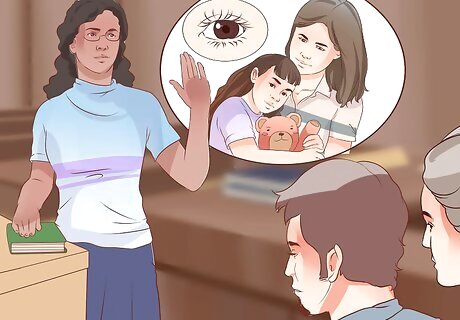
Line up witnesses. Character and eyewitnesses who are familiar with your family and your care of your child are essential in defending against a child neglect claim. People who see your child on a regular basis, such as teachers or coaches, can be among your strongest witnesses. These professionals have experience working with children and probably have seen children who are victims of neglect, making their opinions valuable. If you need a subpoena for witnesses requiring them to attend, contact the clerk of the court where your hearing will be held and ask for one to be issued. You must have the full legal name of the witness you want to call along with an address where he or she can be served with the subpoena.
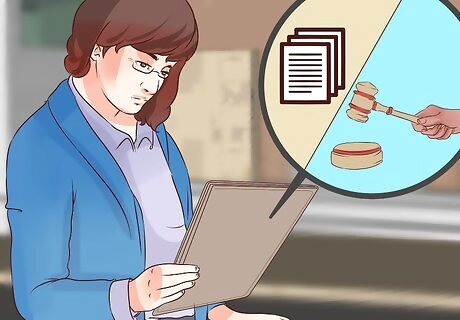
Maintain thorough documentation. Keep detailed records of the care you provide for your child, including school and medical reports. If someone accuses you of child neglect, they are alleging that you aren't taking adequate care of your child. The best defense against a child neglect claim is proof that you actually are taking care of your child. To that end, it is crucial to your defense that you have documentation – along with detailed personal knowledge – of your child's school records and activities, other community involvement, and various aspects of your child's daily life. If you are being accused of not providing adequate medical care for your child, gather any medical reports, letters or notes from the child's doctor, or scheduled appointments, as well as proof of your child's health insurance coverage.

Consult an attorney. If you've been accused of child neglect, the assistance of an experienced family law attorney is crucial to your defense. If you have a low income, many states provide a court-appointed attorney to assist you at no charge upon your request. However, court-appointed attorneys typically are only available if your child has been taken from you. If a court-appointed attorney is not available to you, check with your local legal aid office to learn about other low-cost options that may be available to you. In addition to the legal aid attorneys, there are other attorneys who may be willing to work with you using a sliding-fee scale in which fees are determined based on your income, or by setting up a more affordable payment plan. Keep in mind that agency findings of child neglect can potentially lead to criminal charges. It's important to act as soon as possible to protect yourself and the welfare of your children. An experienced attorney knows what questions to ask and what kind of evidence to seek to help you defend against a child neglect claim effectively, and may be able to ultimately prove the allegations are false.

Appear for all hearings. If you don't show up for any hearings regarding the child, you have no opportunity to present your side of the story and may lose custody by default. There are other negative consequences that may follow from your failure to appeal at a civil hearing when you've been accused of child neglect. For example, criminal charges may be filed or your name may be placed on your state's child abuse and neglect registry, which could threaten your job or any state licenses you hold. Additionally, if you fail to appear at a hearing you are sending the message that you don't care about the outcome. Given that you've been accused of child neglect, this is the wrong message to send to the courts, especially since you may appear before the same judge for other matters.
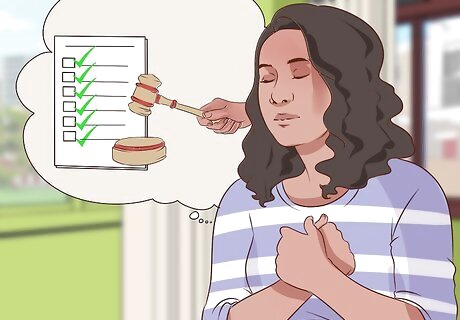
Comply with any court orders. Even if you disagree with the order or believe its terms are unfair, violating a court order will not help your case and can land you in jail. The court, or your state child services agency, may order you to go to counseling or parenting classes. Participating in these classes or receiving counseling shows that you are being cooperative, that you care about your child's best interests, and that you're willing to do whatever is necessary to maintain your relationship with your child.



















Comments
0 comment